-
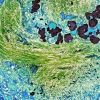 +22 +1
+22 +1Lack of sleep is tied to increases in two Alzheimer's proteins
In people and mice deprived of sleep, researchers found an increase in tau, a protein involved in Alzheimer’s disease, in the fluid bathing the brain.
-
 +35 +1
+35 +1Cannabinoids remove plaque-forming Alzheimer's proteins from brain cells
Scientists have found preliminary evidence that tetrahydrocannabinol (THC) and other compounds found in marijuana can promote the cellular removal of amyloid beta, a toxic protein associated with Alzheimer's disease.
-
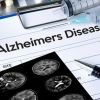 +18 +1
+18 +1Researcher: Alzheimer's vaccine could cut dementia in half, human trials may be next
An experimental vaccine that could hold off Alzheimer's disease is showing results in animal testing, according to researchers at the University of Texas Southwestern Medical Center. Testing in mice has shown that the vaccine safely prevents the buildup of substances in the brain associated with the fatal disease, the team reported this week in the journal Alzheimer's Research & Therapy.
-
 +19 +1
+19 +1Dementia Is Getting Some Very Public Faces
Stigma often prevents patients from acknowledging an Alzheimer’s diagnosis. A series of high-profile disclosures may help change that.
-
 +24 +1
+24 +1Alzheimer’s Is a Spectrum Disorder: How to Treat the Individual
Alzheimer’s is a spectrum disorder that exhibits differently in everyone. Learn how to treat the individual in this informative interview with neurologist Gayatri Devi, M.D.
-
 +10 +1
+10 +1As Bill Freehan lies in hospice care, his wife reveals their love story
Detroit Tigers great Bill Freehan taught us how to live. Now, at the end stages, his wife is teaching us something even more important.
-
 +17 +1
+17 +1Global aging populations mean that dementia rates are about to skyrocket
The number of dementia cases is predicted to more than double in the next three decades.
-
 +21 +1
+21 +1Take a Look at These Unusual Strategies for Fighting Dementia
The Netherlands is pioneering new ways to treat dementia, with sensory aids, soothing music and other tools to calm and nurture patients.
-
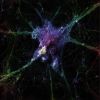 +13 +1
+13 +1Will Not Let Me Go
Dallas, Texas. 1996. Fred Strickland has Alzheimer’s. By Stephen Granade.
-
 +21 +1
+21 +1Scientists Accidentally Discover a Breakthrough Treatment for Alzheimer's
Scientists find that a drug meant for another illness may significantly help Alzheimer's patients.
-
 +14 +1
+14 +1Family Caregivers Exchange Tips, Share Stories To Ease Alzheimer's Losses
As the number of people with Alzheimer's climbs, so does the number of loved ones caring for them. The health of 16 million unpaid U.S. caregivers has become a focus for Alzheimer's advocacy groups.
-
 +42 +1
+42 +1Marijuana Compound Removes Toxic Alzheimer's Protein From The Brain
An active compound in marijuana called tetrahydrocannabinol (THC) has been found to promote the removal of toxic clumps of amyloid beta protein in the brain, which are thought to kickstart the progression of Alzheimer's disease.
-
 +17 +1
+17 +1Mad as a Hatter
Larkin Poe
-
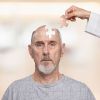 +22 +1
+22 +1No easy fix for Alzheimer’s disease
If pharmaceuticals can’t save you, maybe you can save yourself by changing your lifestyle. Norman Swan explains how.
-
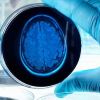 +13 +1
+13 +1Hospitals miss dementia even when already diagnosed
Dementia is being missed by hospital doctors in four in ten cases, research shows. The study by University College London found medical staff are routinely treating patients without realising that they had been diagnosed with dementia. Researchers said the failure to properly record their illness meant vulnerable elderly people were being discharged from hospital with instructions to take crucial medication, without medics realising that they were likely to be suffering from memory problems.
-
 +12 +1
+12 +1Robot dog lends a helping paw to dementia sufferers
Among Ron Grantham's happiest memories are the days he spent fly-fishing with his beloved dog, Spot. Now those memories are being revived by visits from his new best friend, Biscuit - a robotic dog.
-
 +14 +1
+14 +1The road to Alzheimer’s disease is lined with processed foods
The popular conception of Alzheimer's is as an inevitable outcome of aging or bad genes. But much of the risk is related to behavioral and lifestyle factors.
-
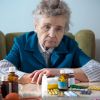 +15 +1
+15 +1Many cases of "dementia" are actually side effects of prescription drugs or vaccines, according to research.
Included in the list of drugs published in the guide that cause dementia-like symptoms are antidepressants, anti-anxiety medications, sedatives, corticosteroids, narcotics, antihistamines, cardiovascular drugs, and anticonvulsants. It’s a very broad range of drugs, and many elderly people take medications from one or more of those categories.
-
 +27 +1
+27 +1Tears may be the key to early Parkinson's diagnosis
As is the case with so many other maladies, the sooner that Parkinson's disease is definitively diagnosed, the better. With that in mind, scientists from UCLA now believe that it may be possible to detect the disease earlier than ever, via analysis of the patient's tears.
-
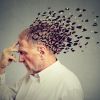 +37 +1
+37 +1Largest study of its kind finds alcohol use biggest risk factor for dementia
Alcohol use disorders are the most important preventable risk factors for the onset of all types of dementia, especially early-onset dementia. This according to a nationwide observational study of over one million adults diagnosed with dementia in France.
Submit a link
Start a discussion




















